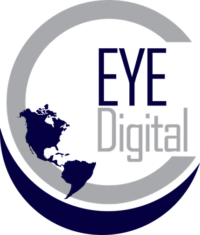In recent years, Artificial Intelligence (AI) and Machine Learning (ML) have emerged as game-changers in the healthcare industry, revolutionizing everything from diagnostics to treatment plans and patient care. These technologies are enhancing efficiency, reducing costs, and ultimately saving lives. Let’s explore how AI and ML are reshaping the healthcare landscape.
1. AI in Medical Imaging and Diagnostics
Medical imaging is one of the most impactful areas where AI is making a difference. Algorithms trained with ML can analyze X-rays, MRIs, and CT scans with high accuracy, often surpassing human radiologists in detecting conditions such as cancer, fractures, and neurological disorders.
-
Example: Google’s DeepMind developed an AI system capable of detecting over 50 eye diseases with an accuracy comparable to leading ophthalmologists.
2. Personalized Medicine and Drug Discovery
AI is playing a crucial role in the development of precision medicine—treatments tailored to an individual’s genetic profile, lifestyle, and environmental factors. By analyzing vast amounts of patient data, AI can predict how a person will respond to a specific drug, reducing the trial-and-error approach.
-
Example: AI-driven drug discovery platforms like BenevolentAI and Insilico Medicine accelerate the process of finding new drugs, significantly cutting development time and costs.
3. Predictive Analytics and Disease Prevention
AI-powered predictive models help in early disease detection and risk assessment by analyzing patient records, lifestyle choices, and genetic predispositions. This allows doctors to intervene early and implement preventive measures before conditions worsen.
-
Example: AI algorithms can predict the likelihood of heart disease by analyzing patient lifestyle data, lab results, and wearable device data.
4. AI-Powered Virtual Assistants and Chatbots
Chatbots and virtual health assistants are transforming patient engagement by providing 24/7 support, symptom assessment, and scheduling assistance. These AI-driven tools help healthcare providers reduce administrative burdens and improve patient satisfaction.
-
Example: Babylon Health’s AI chatbot assesses symptoms and provides recommendations for further medical evaluation.
5. Robotic Surgery and Automation
Robotic-assisted surgery, powered by AI, enables more precise and minimally invasive procedures, leading to faster recovery times and fewer complications. AI also automates administrative tasks such as medical coding, billing, and patient data management, improving workflow efficiency.
-
Example: The Da Vinci Surgical System enhances a surgeon’s precision with robotic arms controlled via AI.
6. Remote Patient Monitoring and Telemedicine
AI has accelerated the adoption of telemedicine and remote monitoring, especially post-pandemic. Wearable devices equipped with AI track vital signs, blood pressure, glucose levels, and more, allowing healthcare professionals to monitor patients in real-time.
-
Example: AI-powered ECG monitors can detect irregular heart rhythms and alert doctors instantly.
Challenges and Ethical Considerations
Despite its vast potential, AI in healthcare faces several challenges:
-
Data Privacy & Security: AI requires large datasets, raising concerns about patient data protection.
-
Regulatory Compliance: AI applications must meet stringent healthcare regulations.
-
Bias in AI Algorithms: Ensuring AI models are trained on diverse datasets to avoid biased predictions.
Conclusion
AI and Machine Learning are revolutionizing the healthcare industry by enhancing diagnostics, streamlining operations, personalizing treatments, and improving patient care. As technology advances, its integration into healthcare will continue to improve outcomes, lower costs, and expand accessibility, ultimately shaping a future where AI-powered healthcare becomes the norm.
Are you ready for the AI-driven transformation of healthcare? Let us know your thoughts in the comments!

